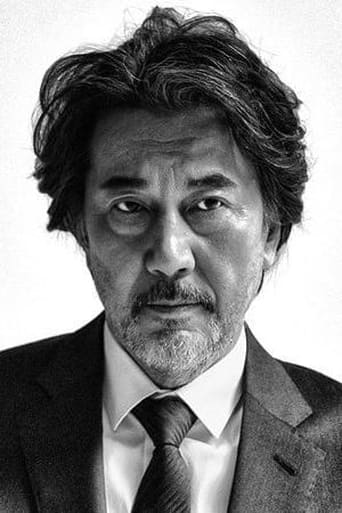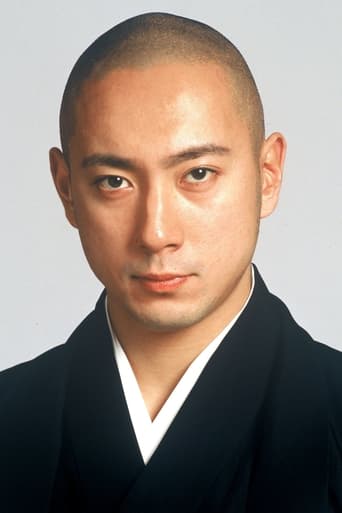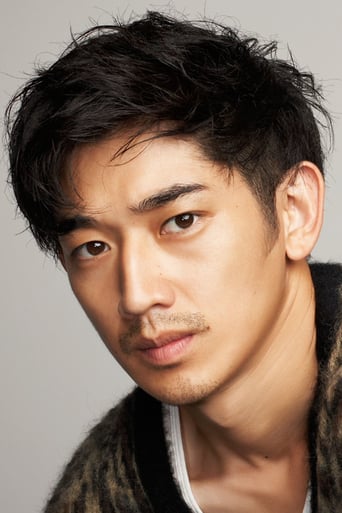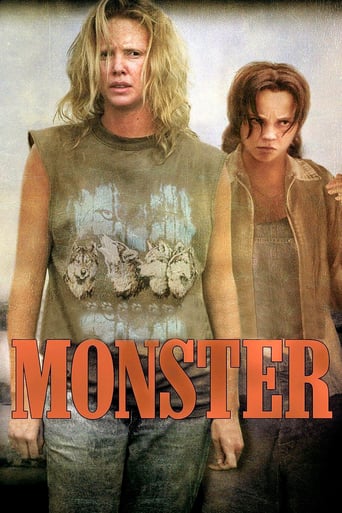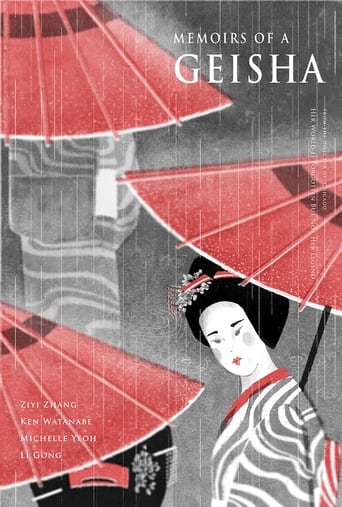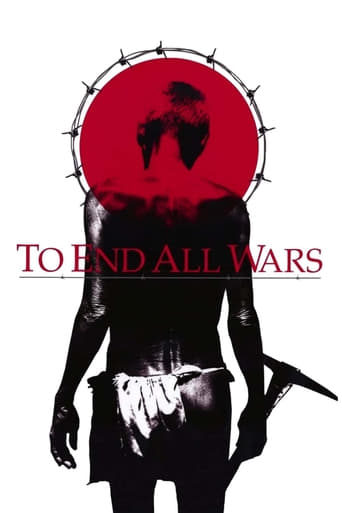
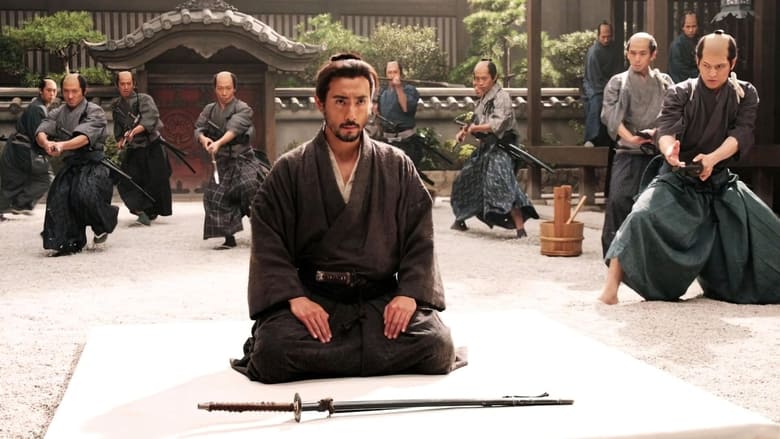
Hara-Kiri: Death of a Samurai (2011)
A tale of revenge, honor and disgrace, centering on a poverty-stricken samurai who discovers the fate of his ronin son-in-law, setting in motion a tense showdown of vengeance against the house of a feudal lord.
Watch Trailer
Cast


Similar titles
Reviews
Takashi returns to the samurai world after the success of '13 assassins' in 2011. This movie was a remake of 1962 'Harakiri' which was also a massive hit movie. I have not seen the original but this movie blown me away. As usual the story opens slow and hard to identify the situation of the story but at the right middle of the movie the flashback strikes with awesome drama about poverty and family sentiment. Once the flashback was told you will easily say where the movie is heading. The story was classic and the movie was presented with rich cinematography. The first digital 3D movie for Takashi Miike as well the first 3D movie to premier at 2011 Cannes film festival.You have to learn a word to understand the movie completely. 'Seppuku' - which means ritual suicide committed by a samurai. So that is why it's called 'Hara-kiri: death of a samurai'. You must have patience during opening sequences, without character and story development you will be in a tough position to understand about what's going on. While the story and character progress with the development you will start to get and you may fall for the emotion parts if you are a tenderhearted. And also you will be uncomfortable during 'seppuku' scene.Takashi Miike's career best, this is what already everyone saying about it. But Its to hard to say which was his best, I like many of his works. I might be overwhelmed by the watch but will be happy to recommend it to others. I was very little unhappy for the ending scene otherwise I could have said it is the best of Takashi's work.I am so curious about Takashi Miike's upcoming and Hollywood debutante project 'The outside' with Tom Hardy. Expecting it would be another 'The last samurai', I wish a good luck to the team.
A samurai film set in the first generation after the rise of the Tokugawa Shogunate -- when the samurai were beginning to perceive the bitter reality that unity and peace were the death knell of much of their usefulness as a caste -- Hara-Kiri centers around a story of disgrace and revenge, but its take on this subject matter is unique, and it is one of the very few samurai films that actually reaches the point of questioning the ethos of "warrior's honour." It is not an action film, for the most part; although its climactic act does feature a fascinating one-against-many throwdown, it isn't there to provide gore and death. This is a film that revolves around story, characters and ideas.The basic premise: with many samurai penniless and out of work under the Shogunate -- which has become vindictive about eliminating all possible threats to its power and has shut down whole domains -- a uniquely samurai kind of con artistry has sprung up, called the "suicide bluff," in which a ronin shows up at a well-appointed lordly estate, begs the use of the courtyard to commit seppuku, and thereby hopes to win the lord's sympathy and to be offered some money or a position in his retinue instead.The film begins with one such story set at the House of Ii; the senior retainer, set to hear a suicide request from a penniless ronin, eyes him skeptically and then tells him (in flashback form) the story of another such ronin who came by attempting a suicide bluff just a short while earlier. The story of that young man, who shows up looking skinny, timorous and pathetic to make his request, is the story of an unsuspecting rube badly miscalculating the seriousness of the House of Ii's commitment to the samurai ideal, notwithstanding that most of its younger warriors have never seen combat. When the retainers of Ii discover that the young ronin has brought only a bamboo practice sword with him, they decide in rage to call his transparent bluff, summoning out the whole house to witness his suicide and sternly demanding that he go through with it... using only that same bamboo sword.The youth's panic and seeming cowardice seem contemptible at first... but there is something just as twisted about the retainers' contempt when they discover he was just trying to get money to buy medicine for a sick wife and child. Finally, seeing that there's no way out, he does contrive to commit seppuku with the bamboo sword, in a scene of surpassing drawn-out agony and horror that will stay with you for days. (His "second," assigned to behead him, seems in particular to almost relish the young man's suffering, refusing to end it until he's twisted the bamboo blade in his guts to the man's satisfaction.) Back to the present, and the senior retainer of Ii offering this latest ronin the chance to leave with no questions asked. And that's when we discover that the two ronins' stories are connected... and that there's a larger objective of retribution in the newcomer's actions.The drama that follows -- which affords us a chance to see the two ronin in an entirely different light, to discover their relationship and what brought them to their desperate pass, and to question whether the suppression of humaneness and empathy in the samurai code of conduct really just isn't a form of empty madness -- is deliberately-paced, intricately structured, and moving. It is well worth seeing, and indeed quite probably the best Japanese drama to be produced so far this century.
HARA-KIRI: DEATH OF A SAMURAI is Takashi Miike's follow-up to the crowd-pleasing, SEVEN SAMURAI-alike, 13 ASSASSINS. This film is a whole different kettle of fish entirely and it's almost as if Miike went deliberately out of his way to make an anti-13 ASSASSINS; there's no action here, none of the wonderfully choreographed fight scenes that made his previous film such a smash.Instead, HARA-KIRI is an intense and emotional drama that explores notions of honour, familial ties and duty, packaging it in such a way that makes it a unique movie. As with most Miike, it's a sometimes obscure, often unwieldy production, deliberately going out of its way to be as slow-paced as possible and letting the story unfold in real time. Flashbacks are used extensively and those looking for an explosive, revenge-fuelled drama would do well to seek elsewhere as this isn't satisfying in that way at all.Instead, it's a unique beast. The first 30 minutes is completely horrifying, a grisly ordeal that nearly manages to outdo PASSION OF THE Christ in its depiction of on screen suffering and pain. The rest of the film is a slow burner, although it does build up to an effective climax of sorts. The actors are well accomplished, with the excellent Ebizo Ichikawa holding the fort for much of the time. Needless to say, the level of technical proficiency is high and the film as a whole is expertly made; the intense drama of the characters' ordeals makes it one of Miike's most mature works yet.
Takashi Miike's second straight tribute to the samurai genre is a well-crafted and finely honed object. It's more consistent than Miike's previous samurai film, 13 Assassins, although that also means it lacks anything as great as that film's final battle. But what sets Hara-Kiri apart is its willingness to not just offer a pastiche of these films but genuinely question their values in a way that is still challenging to the contemporary viewer.Through a series of events told partially in flashbacks, Hara-Kiri poses the question of how relevant our values are -- whether they be highly codified values like honour or the more nebulous instincts that guide us today -- in the face of human suffering. The ronin that we see humiliated and killed in the first act is not guilty of breaking some arcane samurai bylaw but of doing something most of us would find disgraceful. But as the film goes on it argues that we should hold compassion even for people such as this, and that honour is ultimately irrelevant in the face of social suffering. In an age of recession and austerity, where so many try to cling to their ideas of what they or other people "deserve", this is an important message.It's an easy film to appreciate and a difficult one to love -- there's a kind of coldness to this set of Miike's movies that seems out of place with the gonzo enthusiasm of his earlier work. And doubtlessly it will be too slow and cerebral for some. But its critique of not just a canonized genre but the way in which we view ethics makes it well worth seeing.


